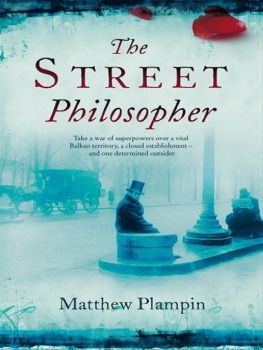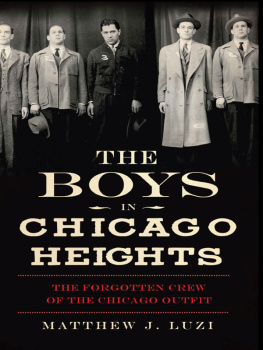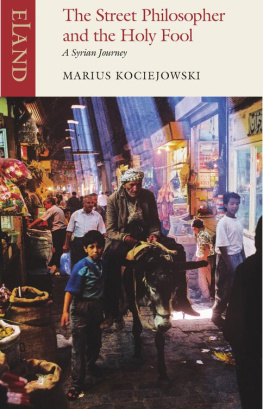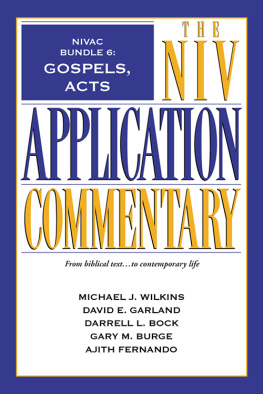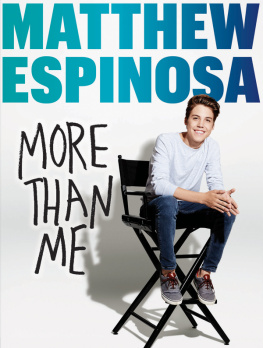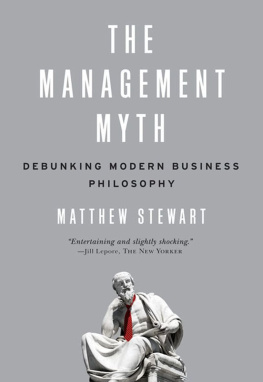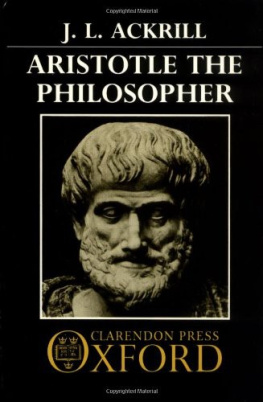Matthew Plampin - The Street Philosopher
Here you can read online Matthew Plampin - The Street Philosopher full text of the book (entire story) in english for free. Download pdf and epub, get meaning, cover and reviews about this ebook. year: 2009, genre: Science. Description of the work, (preface) as well as reviews are available. Best literature library LitArk.com created for fans of good reading and offers a wide selection of genres:
Romance novel
Science fiction
Adventure
Detective
Science
History
Home and family
Prose
Art
Politics
Computer
Non-fiction
Religion
Business
Children
Humor
Choose a favorite category and find really read worthwhile books. Enjoy immersion in the world of imagination, feel the emotions of the characters or learn something new for yourself, make an fascinating discovery.
- Book:The Street Philosopher
- Author:
- Genre:
- Year:2009
- Rating:3 / 5
- Favourites:Add to favourites
- Your mark:
- 60
- 1
- 2
- 3
- 4
- 5
The Street Philosopher: summary, description and annotation
We offer to read an annotation, description, summary or preface (depends on what the author of the book "The Street Philosopher" wrote himself). If you haven't found the necessary information about the book — write in the comments, we will try to find it.
The Street Philosopher — read online for free the complete book (whole text) full work
Below is the text of the book, divided by pages. System saving the place of the last page read, allows you to conveniently read the book "The Street Philosopher" online for free, without having to search again every time where you left off. Put a bookmark, and you can go to the page where you finished reading at any time.
Font size:
Interval:
Bookmark:
The Street Philosopher
Matthew Plampin was born in 1975 and grew up in Essex. He read English and History of Art at the University of Birmingham and then completed a PhD at the Courtauld Institute of Art, London. He now lectures on nineteenth-century art and architecture. This is his first novel.
Visit www.AuthorTracker.com for exclusive information on your favorite HarperCollins author.

Australia
HarperCollins Publishers (Australia) Pty. Ltd.
25 Ryde Road (PO Box 321)
Pymble, NSW 2073, Australia
http://www.harpercollinsebooks.com.au
Canada
HarperCollins Canada
2 Bloor Street East - 20th Floor
Toronto, ON, M4W 1A8, Canada
http://www.harpercollinsebooks.ca
New Zealand
HarperCollinsPublishers (New Zealand) Limited
P. O. Box 1
Auckland, New Zealand
http://www.harpercollinsebooks.co.nz
United Kingdom
HarperCollins Publishers Ltd.
77-85 Fulham Palace Road
London, W6 8JB, UK
http://www.harpercollinsebooks.co.uk
United States
HarperCollins Publishers Inc.
10 East 53rd Street
New York, NY 10022
http://www.harpercollinsebooks.com
Kitsons well-worn boots crunched through the shingle as he walked down towards the shore. It was a cold, unwelcoming afternoon. The sky was low and slate-grey, and the waters of the bay churned with a heavy swell. Sea birds croaked dismally as they hung, wings outstretched, on the brisk wind. Most of the men who filled the landing zone were in uniform, but there were enough ragged-looking civilians among them for Kitson to stride past without remark. Reaching a small rise in the stony beach, he paused to scratch his beard and take stock of the scene around him.
On this, the third day of the invasion, it was the turn of the Earl of Cardigans Light Brigade to disembark. Kitson pulled a pocketbook and pencil from his shabby, faded frock-coat. Squinting, he peered out at the rows of troop transports and frigates anchored in the deeper waters, and attempted to make out their names, jotting down those he could see. There were so many vessels in the bay that the horizon was obscured by a dense forest of masts, funnels and rigging. The echoing blasts of their steam horns drifted over to where he stood scribbling intently into his book.
Flotillas of long rowing boats were ferrying soldiers from the transport ships. Teams of blue-jacketed sailors, seemingly impervious to the cold, waded out into the surf to drag the boats prows up onto the beach. Landing planks were thrown down, and hussars poured out, their scabbards held over their heads to avoid any chance of a freak spray or splash rusting the blades within. Against the dull, washed-out tones of the afternoon, their uniforms seemed intensely colourful, a vivid combination of rich blacks, glowing reds and acid yellows. The blue-jackets stared as the cavalrymen calmly returned their sabres to their belts and strolled slowly inland as if the Crimea were already theirs. Kitson scanned the crowds of plush busbies and brocade-encrusted jackets, noting the regiments for his report.
The breeze changed direction, and a faint, inhuman shrieking reached the correspondents ears. He stopped writing mid sentence. A bone-white horse was dangling over the side of one of the larger iron-screw steamers, suspended from a small crane. Leather straps were fastened around the creatures torso, its legs hanging limply down as it cried out in terror. Beneath it, rocking precariously on the waves, was a crude raft, made from several rowing boats lashed together. The squat black form of an artillery piece already sat awkwardly upon it, tied down with rope; the makeshift platform was unbalanced by its weight, and tipped drunkenly with the rise and fall of the sea.
After a short, tense descent, the horses hooves touched the raft. Several sailors reached out at once, unfastening the straps and patting the beasts neck and muzzle reassuringly. The horse slipped on the shining planks, but was quickly on its feet again, nostrils flaring as it snorted with distress. Already, the next was on its way down, a chestnut this time, whinnying loudly as it came; and before long, three warhorses stood upon the raft as it floated unsteadily beneath the overcast sky.
Disaster was so inevitable, and so familiar, that the blue-jackets greeted it with weariness rather than alarm. One of the horses became tangled up in the cords holding down the gun and, immediately panicking, started to kick and flounder, screaming as it did so. The others promptly reared up, shaking off the men who tried to settle them, adding their voices to what was soon a piercing chorus. With a sharp whipping sound, straining ropes started to snap. A second later the gun toppled overboard, pulling the horse caught up in the ropes after it. Both vanished instantly into the murky brown-green water. The raft lurched upwards on the side where the lost gun had stood, causing the two remaining horses to fall, and then slide off messily into the sea.
Back on the beach, Kitson winced and made a quick entry in his pocketbook.
A few other rafts, similarly troubled, bobbed and span among the looming iron-clads. Some of the transport captains, seeing the mayhem below, had decided to dispense with any attempt at conveying the horses to shore and were simply having them pushed from the deck, leaving it to the beasts themselves to find their way to the beach. Kitson watched them tumble down the sides of the tall ships into the waves, legs kicking wildly, landing in an explosion of foam. He tried to trace the dots of their heads as they swam for the shore. Some of them he lost; others didnt seem to be moving at all, so slow was their progress. His eyes started to ache with the effort.
Blinking, Kitson remembered the telegram, which hed tucked inside the pocketbooks front cover. He pulled it out. The crumpled piece of yellowed paper bore terse words from OFarrell back in London, shouted out in mechanical script: Illustrator Robert Styles STOP Lands Eupatoria sixteenth SeptemberSTOP HMS Arthur STOP. It had arrived about three weeks earlier, at the telegraph office in Varna. Cracknell, predictably enough, hadnt been impressed.
Men dropping dead from bloody cholera all around us, not a drop of decent brandy for five hundred bloody miles, a bloody great war about to commence, and what does our editor send out to his brave correspondents? A bloody illustrator!
Kitson had muttered his concurrence. Inwardly, however, hed been intrigued, and pleased that the London Couriers reporting team was to be enlarged. After months spent following Richard Cracknell through the brothels and slums of Constantinople, and then trailing behind him across the meadows of Bulgaria, Kitson had come to feel almost as if he were a manservant rather than a junior reporting partner. The thought of a peer, an equal, had a distinct appealand what was more, this Mr Styles, as an illustrator, a professional artist, would surely be a man of some culture. Hed know about the successes and failures of the Academy Summer Exhibition, at least. Kitson longed for such conversation in a manner he wouldnt have thought possible half a year earlier.
Before him, the waiting hussars yelled encouragement as horses started to reach the shore. Kitson looked up from the telegram. The blue-jackets in the sea were attempting to get hold of the dazed animals before they could stagger out of the water, but the men were inexperienced, and allowed many to escape. Once on the beach, the horses shook their manes, looked quickly about them, and then bolted. One, a grey, charged by close to where Kitson stood, hooves clattering through the stones, eyes wide with fear, water streaming down its sea-darkened flanks. Several hussars gave chase, raising their arms in the air, whistling shrill signals that, on this occasion, the highly trained horse failed even to notice.
Font size:
Interval:
Bookmark:
Similar books «The Street Philosopher»
Look at similar books to The Street Philosopher. We have selected literature similar in name and meaning in the hope of providing readers with more options to find new, interesting, not yet read works.
Discussion, reviews of the book The Street Philosopher and just readers' own opinions. Leave your comments, write what you think about the work, its meaning or the main characters. Specify what exactly you liked and what you didn't like, and why you think so.

